#it was technically a different rpg system
Explore tagged Tumblr posts
Text
Cannot stress enough how awkward it is pulling up to the first campaign with the besties, only to discover I'm the ONLY ONE that invested in dragons as to read and scower through everything for them. Thought it was universal
#dnd#kinda???#it was technically a different rpg system#but we still used other dnd rules#BUT I MADE A HALF DRAGON CHARACTER#AND APPRENTLY FEW OTHERS KNOW GREEN DRAGONS ARE NORMALLY EVIL#AND THAT ONLY RED GOLD AND BRASS HAVE FIRE WEAPONS#my guys going through it#he is NOT getting along with the party members#and has actively tried sabotaging them#to be fair though#they DID point out his illegimate-heir thingy and made rude remarks about dragons#And stole his arms#wish I was kidding#overcastedsays reference#feild-null reference#dragons#green dragons#dnd character
0 notes
Text

It's that type of night. (The session is also starting literally now.)
#chronicle vii#eelslippers#ttrpg#tabletop rpg game#tabletop rpg games#tabletop roleplaying#dnd#dungeons and dragons#technically it's NOT dnd but im far too distressed by time rn to really care#technically it's a whole entire different system#but i need RESULTS NOW#and i have expectations to uphold#im near tears rn#Dm#dungeon master
1 note
·
View note
Text
connection.find(omni_net) connection established omni.id.vericode(Y/N) (Y) {vericode entered} connection verified - lancer 910372
{audio recording}
[Coryander can be heard but her voice is too muffled to make out]
[there is a click and a hiss]
stupid mask- okay hi!! yes!!! i literally just came from the hangar!! but YES!! yes! it's so satisfying to solve problems, and like especially problems with mechs! i don't get to do it much, which like is probably good, but it's so satisfying to work on something all day and then finally figure out what it is and fix it!! i've been trying to get Hemera to stop whining whenever Thebe starts her up! and like her SEKMET kept saying there was something poking her -which i dont think can happen since she's not in realspace but still-, anyways i couldn't figure it out! i had to crawl all around and like all the systems looked fine right and the diagnostic checks said everything was alright!! so i couldn't tell what was actually going on! and Thebes said she literally replaced the degraded panel last night that was all melted so like everything should be fine, but like it clearly wasn't right!
anyways i ended up having to power her down, open her up, actually crawl inside which like i dont know if anyone here has actually had to get inside the ribcage of a Togukawa but wow that thing is scary on the inside too, and hot like apparently even out of combat woof.
okay and so like eventually i found one of clips that held the coolant line in place had been warped by the heat (which like they're not supposed to do but apparently harrison can't do the like one thing they do right, but whatever so it had warped out of place and gotten caught on the slip between the two panels of Hemera's like chest? yall know what i mean the little like orange chest thingy, and so it was scratching up the inside of the panel new panel cause it like wasn't deformed by heat and occasionally got stuck! so the whining was the heat escaping through this little hole and that's what was "poking" her SEKMET, but like UGH! it feels so good to struggle with something, find the problem and then be able to fix it properly, like i had to go in and remold the new panel and replace the pin and get it properly fixed in place which took a couple hours but it's so satisfying to finish a job like that!
uh ya anyways i so agree!! sorry for rambling all of the place but ya ya!! i very much agree Magpie it's like actually the funnest thing!!
Coryander signing off!
{recording ends}
[Secure Connection Established]
You know, one of my favourite parts of working with the Runners is helping out the pilots with repairing their mechs.
Even you’re only technically the IT for your ship, you’d be surprised at how many problems I get called to solve that are either “Turn it off and on again” or “Unplug and replug something in” (in the latter’s defence said “something” is sometimes some small component that they just don’t have the dexterity to do. Doesn’t make it any more interesting!)
But with mechs, whenever there’s a problem there’s a PROBLEM. Which while yes, can be more frustrating, is also wayyy more satisfying to solve. I was just helping Wildcat with a problem and it was one of the most satisfying puzzles I’ve had to deal with in a while. I even thanked her for calling me!
(It may or may not help that certain pilots are unreasonably buff and wear shirts that do it so much justice while repairing… but ahaha you didn’t hear that from me…)
It’s not my fault pilots are hot! Well… one particular one anyways. Sigh. Maybe I am too lonely in my little tech nest. This was supposed to help with that!
Ah- uh, anyways, Magpie signing off.
#now i get to go watch marigolds of the summer court with Thebe!!#Kanmi can't join tonight apparently he wants to go talk to Dido about something. so just me and her tonight! im really enjoying the tension#between Valeria and the other girl who's name i can't remember right now. also i've been learning more flower language! i've got roses down#and i like i can mostly remember the color differences between hyacinths!! im learning!!#ooc: does any of this make mechanical sense? im sure not#but let a girl ramble#Cory is the default fix-it person on the Cypriot even if she's not the most technically inclined#she doesnt know too much tech stuff outside of her own mech#and some of the ships systems but that's just from needing to operate them with being a Cosmopolitan and like growing up on a station#despite her control of Wallcreeper being largely neural she finds so much enjoyment in the physical aspects of repair i think#finds it very viscerally satisfying in a different way to her work as a lancer#lancer oc#lancer pilot#lancer rp#lancer rpg
19 notes
·
View notes
Text
Deadball
Deadball Second Edition is a platinum bestseller on DrivethruRPG. This means it's in the top 2% of all products on the site. Its back cover has an endorsement from Sports Illustrated Kids.
It's also not an rpg I'd heard about until I discovered all of these facts one after another.
I was raised in a profoundly anti-sports household. My father would say stuff like "sports is for people who can't think" and "there's no point in exercising, everything in your body goes away eventually." So I didn't learn really any of the rules of the more popular American sports until I was in my mid twenties, and I've been to two ballgames in my life. I appreciate the enthusiasm that people have for sports, but it's in the same way that I appreciate anyone talking about their specific fandom.
One of the things that struck me reading Deadball was its sense of reverence for the sport. Its language isn't flowery. It's plain and technical and smart. But its love for baseball radiates off of the pages. Not like a blind adoration. But like when a dog sits with you on the porch.
For folks familiar with indie rpgs, there's a tone throughout the book that feels OSR. Deadball doesn't claim to be a precise simulation or a baseball wargame or anything like that---instead it lays out a bunch of rules and then encourages you to treat them like a recipe, adjusting to your taste. And it does this *while* being a detailed simulation that skirts the line of wargaming, which is an extremely OSR thing to do.
For folks not familiar with baseball, Deadball starts off assuming you know nothing and it explains the core rules of the sport before trying to pin dice and mechanics onto anything. It also explains baseball notation (which I was not able to decipher) and it uses this notation to track a play-by-play report of each game. Following this is an example of play and---in a move I think more rpgs should steal from---it has you play out a few rounds of this example of play. Again, this is all before it's really had a section explaining its rules.
In terms of characters and stats, Deadball is a detailed game. You can play modern or early 1900s baseball, and players can be of any gender on the same team, so there's a sort of alt history flavor to the whole experience, but there's also an intricate dice roll for every at bat and a full list of complex baseball feats that any character can have alongside their normal baseball stats. Plus there's a full table for oddities (things not normally covered by the rules of baseball, such as a raccoon straying onto the field and attacking a pitcher,) and a whole fatigue system for pitchers that contributes a strong sense of momentum to the game.
Deadball is also as much about franchises as it is about individual games, and you can also scout players, trade players, track injuries, track aging, appoint managers of different temperaments, rest pitchers in between games, etc.
For fans of specific athletes, Deadball includes rules for creating players, for playing in different eras, for adapting historical greats into one massively achronological superteam, and for playing through two different campaigns---one in a 2020s that wasn't and one in the 1910s.
There's also thankfully a simplified single roll you can use to abstract an entire game, allowing you to speed through seasons and potentially take a franchise far into the future. Finances and concession sales and things like that aren't tracked, but Deadball has already had a few expansions and a second edition, so this might be its next frontier.
Overall, my takeaway from Deadball is that it's a heck of a game. It's a remarkably detailed single or multiplayer simulation that I think might work really well for play-by-post (you could get a few friends to form a league and have a whole discord about it,) and it could certainly be used to generate some Blaseball if you start tweaking the rules as you play and never stop.
It's also an interesting read from a purely rpg design perspective. Deadball recognizes that its rules have the potential to be a little overbearing and so it puts in lots of little checks against that. It also keeps its more complex systems from sprawling out of control by trying to pack as much information as possible into a single dice roll.
For someone like me who has zero background in baseball, I don't think I'd properly play Deadball unless I had a bunch of friends who were into it and I could ride along with that enthusiasm. However as a designer I like the book a lot, and I'm putting it on my shelf of rpgs that have been formative for me, alongside Into The Odd, Monsterhearts, Mausritter, and Transit.
#ttrpg#ttrpg homebrew#ttrpgs#ttrpg design#indie ttrpgs#rpg#tabletop#indie ttrpg#dnd#rpgs#baseball#fantasy baseball#deadball
710 notes
·
View notes
Note
Favorite obscure Mario characters?
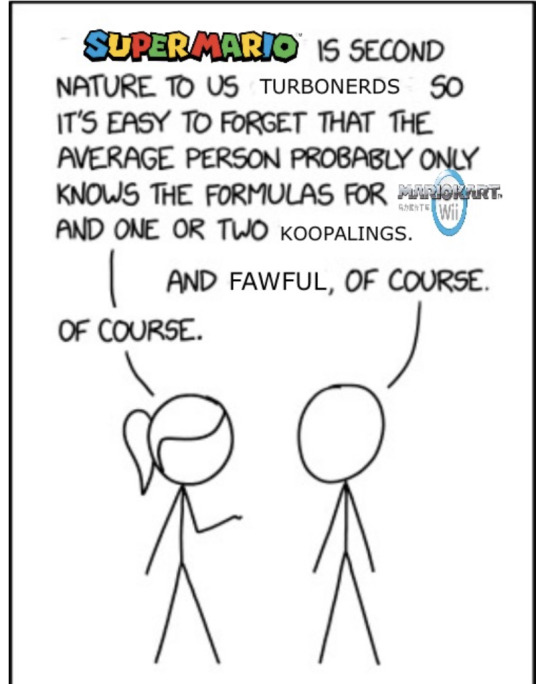
GLOM
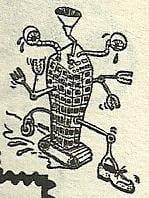
The light of my fucking life. As a lifelong koopalinghead and specifically iggyhead i slurped up the Nintendo Adventure Books like a slug slurps slime and obviously a connoisseur of my caliber would immediately latch onto this thing. It's a cloning machine Iggy made that turns sand into clones but more importantly it is a 15 ft tall clanking clunking contraption with googly eyes (to see what it's cloning, natch), a stack of CRT monitors that each display a different horror B-movie at all times, and a constant trail of slime oozing from its tank treads. If this is not your favorite Mario character of all time then you're an idiot.
2. DOUGHNUTEER

I might be the only person who cares about doughnuteer and I couldn't tell you why. Actually I can, it's because he reminds me of a little shrew

And I like doughnuts.
3. PIRANHA SUE
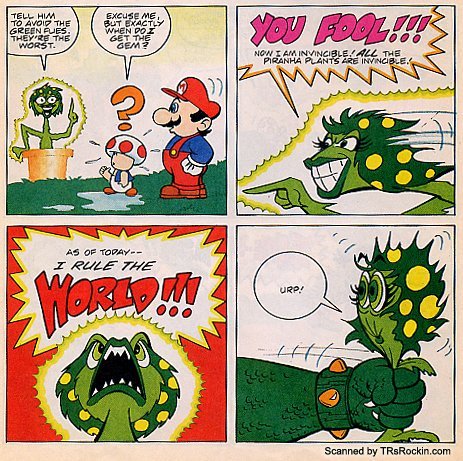
In addition to the Nintendo Adventure Books i also lapped up the corresponding Nintendo Comics System, which followed a similar continuity in the absence of more official sources of mario lore. I never appreciated piranha sue as much as I should have in my youth but after revisiting these comics a couple years ago i can safely say that she is the greatest bootleg piranha plant I have ever met and it is an honor to witness her evil human teeth. I want her in mario baseball.
4. HERMAN SMIRCH

Herman smirch is a terrible person and character but I am transfixed by his awfulness and so he is here. Growing up the Game Boy Comic was like the evil counterpart to the Nintendo Comics System, but now that I'm grown up and evil myself I can truly appreciate the depths of its depravity. The gist of Herman Smirch is that he is a shitty loser republican from new jersey who obtains a game boy that, through the will of Tatanga (who lives in the game boy), manipulates him into committing increasingly violent crimes until he has embroiled himself in an international military conflict. The game boy comic was supposed to make people want to buy the game boy but in practice placed it center stage in a slow burn of this already terrible man's spiral into insanity. What a yarn. I have shown a highlights reel of herman's wacky antics here but if you're too lazy to click that link then I at least want you to see this:
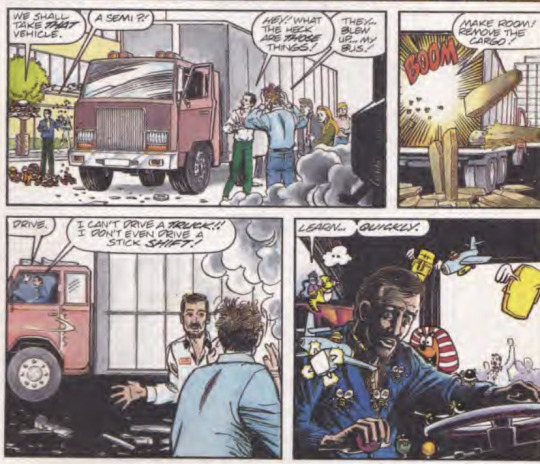
5. FRACKTAIL

Fracktail is comparatively not obscure at all but I don't care it's my list I'll cry if I want to. If I put fracktail here then I would technically be justified in also putting other mario rpg all-stars like Bowyer and TEC-XX and Valentina but I won't go that far, Fracktail can be here on their behalf. Anyway, the first time I saw this thing I screamed, because I thought I was going to have to fight it, and then it was friendly and then I loved it forever. And then a stupid bastardly clown came and destroyed everything and ruined my life but this isn't about him. I love you Fracktail and I wish you were still here. You didn't deserve that
6. HAL 9001
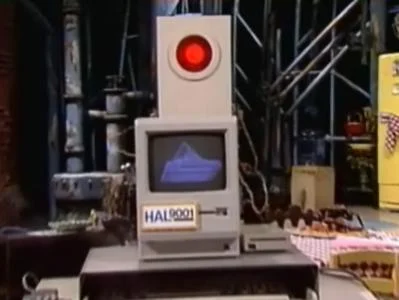
Moving on
7. WOOSTER
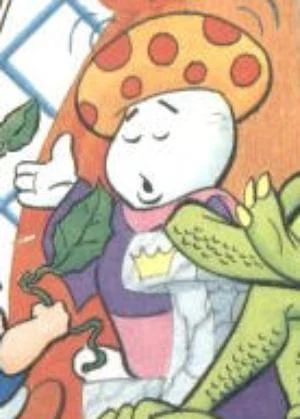
Before Toadsworth, there was Wooster. The original long-suffering butler to the Toadstools, Wooster was a Nintendo Comics System Special who presumably passed alongside the Mushroom King he served. There isn't much to say about his character beyond the typical trappings of Beleagured Butler, but there is one thing that makes him interesting to think about and that is the comic called "Wooster Quit". In "Wooster Quit", every Mario character is FLABBERGASTED because Wooster Quit, and they can't imagine a life without Wooster. So the whole comic is about everybody trying to get Wooster back and of course Wooster comes back and the status quo is restored. But the premise of casting this mario OC as an essential player in these characters' lives is funny to me in a meta sense because we very much do live a life without Wooster. We are living in a post-Wooster world. It just goes to show that no matter how obscure you are, you are important to someone. Even if that someone is me.
8. ROACHIE
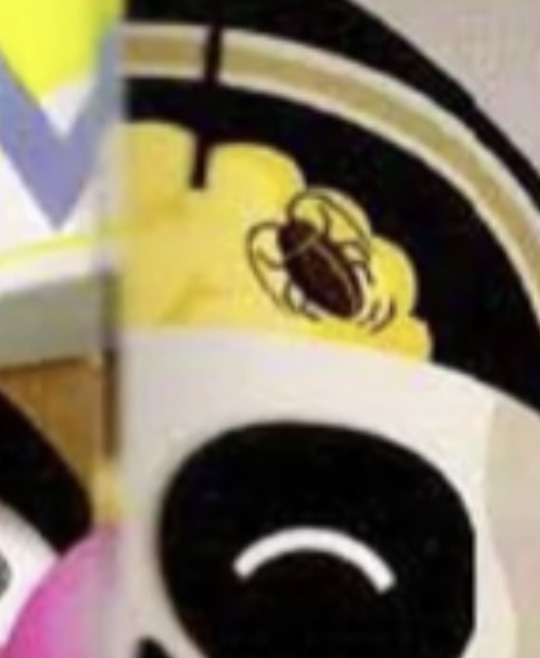
Roachie is the cockroach living in Wario's brain. One morning, she crawled up his nose, which Wario was horrified by but not for the reason you might think: "Is little roachie gone for good?!?!!?" As a devout cockroach appreciator, I was touched by Wario's genuine concern for God's most darling creature. Fortunately, little roachie was not indeed gone for good, because that very night, Wario heard her walking around inside his skull. Yippie! Hooray! We can only hope that she is living a nice life up there to this day. Hope is all we have.
9. BRAWL DOLL

This will come as no surprise to those who know me, but if you don't know me: fellas, I fucking love ventriloquist dolls. Charlie mccarthy was my idol growing up. I'll never be half the dummy he was. So a wario-branded wooden doll is basically my ant bait. Brawl Doll is what Geno could have been if Square wasn't full of squares.
10. THE BEETLES 'R' US SNIFIT
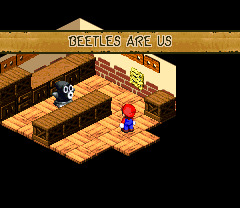
They put me in a mario game
260 notes
·
View notes
Text
Ryuutama
A treat for the Dragon likers in our audience, wait til Warrenguard for some more though
Genre: Exploration! Touchstones: Ghibli Films, Trail of Oregon (not ACTUALLY but its a good comparison point)
What is this game?: Ryuutama is a game about travelling... somewhere! you're not big damn heroes though, just merchants and artisans
How's the gameplay?: Ryuutama uses a system where skill checks will most of the time use two dice and two skills, so for example chopping down a tree might be [Str + Dex], then you add those two numbers together + Your mod in each respective skill to get your final number! at times you might also need to use different dice sizes, for example a d8 and a d4, and sometimes you'll only roll one die, those are very difficult checks. Character creation is a breeze! Choose a class (from options like Minstrel, Noble, Farmer, or Merchant), a Style (from Magic/Attack/Technical), Stats, your preferred weapon, a personal item, and minor details, thats it! The interesting part of Ryuutama is of course, the GM, you see the GM is playing a character throughout the campaign as well as narrating everything, this character is the Ryuujin, a powerful dragon that can assume a less threatening form in order to approach the party, as well as a humanoid form with horns, dragons have an Artifact (A major gameplay modification) and a list of Benedictions (Powerful effects that change the rules for one session) and Reveils (Powerful abilities that immediately have some sort of effect)
What's the setting (If any) like?: The setting is created by the GMs and Players working together, though high fantasy is expected!
What's the tone?: Ryuutama is a laid back, chill game... well mostly, a Crimson dragon GM or Black Dragon GM can change the game's tone widely, changing it to either a combat focused game (not recommended, the combat's p light) or a dark intrigue game
Session length: 1-3 hours! Ryuutama's built for shorter sessions
Number of Players: 3-5 players, including the GM
Malleability: Pretty low, there's no real setting but you wanna keep it in High Fantasy ville for the most part
Resources: Ryuutama is actually a pretty big game, so theres some resources if you're willing to look, character sheets, mood playlists, supplements, all available and translated
Ryuutama is a chill, pleasant walk through a world of magic and monsters, you'll need to fight sometimes, but the challenges in the world mostly come from yourselves and the world around you, its a cute game!
94 notes
·
View notes
Note
Hi, just wanted to ask if you have any advice for someone who grew up with DnD 3.5e and wants to branch out into other game systems. I would really like something that is more storyfocused but also has a space for more rules light combat.
(Sorry if this ask is too demanding, you can gladly delete it. I just have seen you answer other asks about recomendations and wanted to try my luck)
I can give it the ol' college try, but firstly: the ask that something be "story focused" is a bit too vague and broad and can mean any number of things depending on what the person means. Some people use it to mean "rules light instead of crunchy," while others use it to mean "a game focused on genre emulation," and yet others mean "you know, something that's not about dungeon-crawling and combat." I know this is one of those issues where it might be hard to articulate what it is you want exactly unless you already have been exposed to other games, but it's always worth trying to be a bit more specific.
Anyway with all of that out of the way, I'm going to keep these suggestions within the realm of fantasy. Even though you didn't specify that, I'm going to keep at least one angle consistent between these suggestions, because otherwise this'll be all over the place.
Quest is a game I've recommended a bunch of times for people looking for a game that is broadly in the same genre of D&D (fantasy adventure) but does away with some of the mechanics that the genre of "D&D as it's played on podcasts" does away with. It's a simple d20-based fantasy RPG with lots of room for player input and relatively light mechanics. The perfect type of game if you mostly want to chuck some d20s with your friends while playing a pretty straightforward adventure game with minimal logistics. It's also free!
Grimwild is another one I've found quite charming. It's an interesting one: clearly inspired by D&D 5e (like, the character options are straight from 5e), but approaching that genre from a completely different direction. It clearly takes cues from some more modern indie RPGs like Apocalypse World and Blades in the Dark, but still has its own unique twists on many ideas. Worth taking a look if you're into the broad genre of fantasy adventure but want something that approaches that genre via something a bit more generative. Also has a free version available, with the paid version mainly adding some essays about the designer's rationale for some of the choices in the game as well as advice on how to hack the game to different subgenres of fantasy.
Third I'm going to suggest QuestWorlds. QuestWorlds is technically setting neutral, but specifically meant for pulp adventures where the heroes are larger than life. It's a game with a history going as far back as the early 2000s and has gone through a few names, with QuestWorlds being the latest, and at the time of release it was one of the first examples of a roleplaying game that did not try to simulate its fictional reality via specific procedures but very specifically applied its rules towards emulating story convention. The main issue with QuestWorlds with regards to this ask is that it's very much a toolkit and also it doesn't really have a combat system. It has systems for resolving conflict, and those systems can in fact be used for resolving combat, but it's probably not what you're looking for if you want an actual combat system. Regardless, a very interesting game, but sadly no free version of this one.
Hopefully at least one of those will scratch and itch. If not, do let me know if there's something more specific you're looking for! :)
39 notes
·
View notes
Text
The Far Roofs: Systems
Hi!
Today I’m going to talk a little bit more about my forthcoming RPG, the Far Roofs. More specifically, I want to give a general overview of its game mechanics!
So the idea that first started the Far Roofs on the road to being its own game came out of me thinking a lot about what large projects feel like.
I was in one of those moods where I felt like the important thing in an RPG system was the parallel between that system and real-world experience. Where I felt like the key to art was always thinking about the end goal, or at least a local goal, as one did the work; and, the key to design was symmetry between the goals and methods, the means and ends.
I don't always feel that way, but it's how I work when I'm feeling both ambitious and technical.
So what I wanted to do was come up with an RPG mechanic that was really like the thing it was simulating:
Finding answers. Solving problems. Doing big things.
And it struck me that what that felt like, really, was a bit like ...
You get pieces over time. You wiggle them around. You try to fit them together. Sometimes, they fit together into larger pieces and then eventually a whole. Sometimes you just collect them and wiggle them around until suddenly there's an insight, an oh!, and you now know everything works.
The ideal thing to do here would probably be having a bag of widgets that can fit together in different ways---not as universally as Legos or whatever, but, like, gears and connectors and springs and motors and whatever. If I were going to be building a computer game I would probably think along those lines, anyway. You'd go to your screen of bits and bobs and move them around with your mouse until it hooked together into something that you liked.
... that's not really feasible for a tabletop RPG, though, at least, not with my typical financial resources. I could probably swing making that kind of thing, finding a 3d printing or woodworking partner or something to make the pieces, for the final kickstarter, but I don't have the resources to make a bunch of different physical object sets over time while I'm playtesting.
So the way I decided that I could implement this was by drawing letter tiles.
That I could do a system where you'd draw letter tiles ... not constantly, not specifically when you were working, but over time; in the moments, most of all, that could give you insight or progress.
Then, at some point, you'd have enough of them.
You'd see a word.
That word'd be your answer.
... not necessarily the word itself, but, like, what the word means to you and what the answer means to you, those would be the same.
The word would be a symbol for the answer that you've found, as a player and a character.
(The leftover letters would then stick around in your hand, bits of thought and experience that didn't directly lead to a solution there, but might help with something else later on.)
Anyway, I figured that this basic idea was feasible because, like, lots of people own Scrabble sets. Even if you don't, they're easier to find than sets of dice!
For a short indie game focused on just that this would probably have been enough of a mechanic all on its own. For a large release, though, the game needed more.
After thinking about it I decided that what it wanted was two more core resolution systems:
One, for stuff like, say ... kickstarter results ... where you're more interested in "how well did this do?" or "how good of an answer is this?" than in whether those results better fit AXLOTL or TEXTUAL. For this, I added cards, which you draw like letter tiles and combine into poker hands. A face card is probably enough for a baseline success, a pair of Kings would make the results rather exciting, and a royal flush result would smash records.
The other core system was for like ... everyday stuff. For starting a campfire or jumping a gap. That, by established RPG tradition, would use dice.
...
I guess technically it didn't have to; I mean, like, most of my games have been diceless, and in fact we've gotten to a point in the hobby where that's just "sort of unusual" instead of actually rare.
But, like, I like dice. I do. If I don't use them often, it's because I don't like the empty page of where to start in the first place building a bespoke diced system when I have so many good diceless systems right there.
... this time, though, I decided to just go for it.
--
The Dice System
So a long, long time ago I was working on a game called the Weapons of the Gods RPG. Eos Press had brought me in to do the setting, and somewhere in the middle of that endeavor, the game lost its system.
I only ever heard Eos' side of this, and these days I tend to take Eos' claims with a grain of salt ... but, my best guess is that all this stuff did happen, just, with a little more context that I don't and might not ever know?
Anyway, as best as I remember, the first writer they had doing their system quit midway through development. So they brought in a newer team to do the system, and halfway through that the team decided they'd have more fun using the system for their own game, and instead wrote up a quick alternate system for Weapons of the Gods to use.
This would have been fine if the alternate system were any good, but it was ... pretty obviously a quick kludge. It was ...
I think the best word for it would be "bad."
I don't even like the system they took away to be their own game, but at least I could believe that it was constructed with love. It was janky but like in a heartfelt way.
The replacement system was more the kind of thing where if you stepped in it you'd need a new pair of shoes.
It upset me.
It upset me, and so, full wroth, I decided to write a system to use for the game.
Now, I'd never done a diced system before at that point. My only solo game had been Nobilis. So I took a bunch of dice and started rolling them, to see ... like ... what the most fun way of reading them was.
Where I landed, ultimately, was looking for matches.
The core system for Weapons of the Gods was basically, roll some number of d10s, and if you got 3 4s, that was a 34. If you got 2 9s, that was a 29. If your best die was a 7 and you had no pairs at all, you got 1 7. 17.
It didn't have any really amazing statistical properties, but the act of rolling was fun. It was rhythmic, you know, you'd see 3 4s and putting them together into 34 was a tiny tiny dopamine shot at the cost of basically zero brain effort. It was pattern recognition, which the brain tends to enjoy.
I mean, obviously, it would pall in a few minutes if you just sat there rolling the dice for no reason ... but, as far as dice rolling goes, it was fun.
So when I went to do an optional diced system for the Chuubo's Marvelous Wish-Granting Engine RPG, years later, to post here on tumblr ... I already knew what would make that roll fun. That is, rolling a handful of dice and looking for matches.
What about making it even more fun?
... well, critical results are fun, so what about adding them and aiming to have a lot of them, though still like rare enough to surprise?
It made sense to me to call no matches at all a critical failure, and a triple a critical success. So I started fiddling with dice pool size to get the numbers where I wanted them.
I'm reconstructing a bit at this point, but I imagine that I hit 6d10 and was like: "these are roughly the right odds, but this is one too many dice to look at quickly on the table, and I don't like that critical failure would be a bit more common than crit success."
So after some wrestling with things I wound up with a dice pool of 5d6, which is the dice pool I'm still using today.
If you roll 5d6, you'll probably get a pair. But now and then, you'll get a triple (or more!) My combinatorics is rusty, so I might have missed a case, but, like ... 17% of the time, triples, quadruples, or quintuples? And around 9% chance, for no matches at all?
I think I was probably looking for 15% and 10%, that those were likely my optimum, but ... well, 5d6 comes pretty close. Roughly 25% total was about as far as I thought I could push critical results while still having them feel kind or rare. Like ...
If I'm rolling a d20 in a D&D-like system, and if I'm going to succeed on an 18+, that's around when success is exciting, right? Maybe 17+, though that's pushing it? So we want to fall in the 15-20% range for a "special good roll." And people have been playing for a very long time now with the 5% chance of a "1" as a "special bad roll," and that seemed fine, so, like, 20-25% chance total is good.
And like ...
People talk a lot about Rolemaster crit fail tables in my vicinity, and complain about the whiff fests you see in some games where you keep rolling and rolling and nothing good or bad actually happens, and so I was naturally drawn to pushing crit failure odds a bit higher than you see in a d20-type game.
Now, one way people in indie circles tend to address "whiff fests" is by rethinking the whole dice-rolling ... paradigm ... so you never whiff; setting things up, in short, so that every roll means something, and every success and failure mean something too.
It's a leaner, richer way of doing things than you see in, say, D&D.
... I just didn't feel like it, here, because the whole point of things was to make dice rolling fun. I wanted people coming out of traditional games to be able to just pick up the dice and say "I'm rolling for this!" because the roll would be fun. Because consulting the dice oracle here, would be fun.
So in the end, that was the heart of it:
A 5d6 roll, focusing on the ease of counting matches and the high but not exorbitant frequency of special results.
But at the same time ...
I'm indie enough that I do really like rolls where, you know, every outcome is meaningful. Where you roll, and there's never a "whiff," just a set of possible meaningful outcomes.
A lot of the time, where I'm leaning into "rolls are fun, go ahead and roll," what it means to succeed, to fail, to crit, all that's up to the group, and sometimes it'll be unsatisfying. Other times, you'll crit succeed or crit fail and the GM will give you basically the exact same result as you'd have gotten on a regular success or failure, just, you know, jazzing up the description a bit with more narrative weight.
But I did manage to pull out about a third of the rolls you'll wind up actually making and assign strong mechanical and narrative weight to each outcome. Where what you were doing was well enough defined in the system that I could add some real meat to those crits, and even regular success and regular failure.
... though that's a story, I think, to be told some other time. ^_^
231 notes
·
View notes
Text
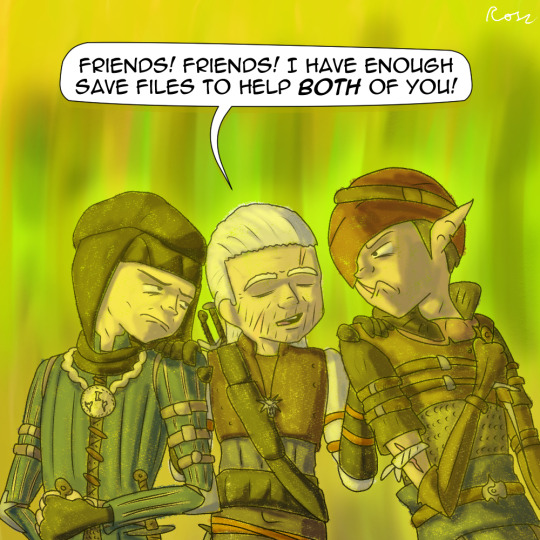
The Witcher 2: Assassins of Memory Storage.
In many ways The Witcher 2 is a quantum improvement over its predecessor - better graphics, better combat, better writing, better atmosphere, better art direction, better soundtrack, better characters - but it's still funny seeing the developers visually struggle with the hard limits of what PS360-era console hardware was capable of.
Lack of memory meant that all the fancy bells-and-whistles HD texture mapping could populate an area no larger and more complex than my back garden, which meant that despite the scope of the story being substantially greater than the first game, the actual physical size of the game world is massively smaller and less intricate, with working cities reduced to provincial villages and sprawling marshlands reduced to narrow loading-screen gulleys. You have to imagine this influenced the decision to introduce way more impactful branching paths with a totally different second half depending on your choice, described by many as effectively having two RPGs in one, but that seems less the intention and more that it was the only way to extract forty hours of content from the assets they were able to create.
I much prefer my RPG experiences to be one-and-dones, I don't do replays very often at all, but the straight shot to the end of this game was so brief that I feel I need the replay to get my money's worth out of it. But there's only so much I can complain when the story is so colossally better than CD Projekt Red's last go-round, like holy shit...
I was initially wary as I found the human/non-human conflict in the first game a bit contrived and this seemed to be treading similar ground at first (not to mention the Order was so obviously evil that you'd have to be psycho to take their side over the Scoia'tael), but it quickly becomes apparent that we're dealing with a distressed gaggle of bittereinders with no hope of victory being used as pawns in a larger game, as is their Blue Stripes counterparts hunting them to whom they're just one of a number of threats to their kingdom's security. Having an Evil Witcher as the antagonist deftly justifies Geralt's involvement in this situation involving kings, sorcerers and emperors that would normally be way above his paygrade.
Still, if there is one thing I feel the game jettisons from the books (and the first game was already hanging by a thread in this regard) is the sense that you're a glorified ratcatcher of no special importance, from jump you're immediately thrust into high-level political chicanery and the low-single-figure number of contracts you pick up in each hub are so perfunctory they may as well not be there. The elevation of book!Geralt from a passive POV to an active participant whose choices massively shape the world around him is even more pronounced in the second game than it already was in the first, in a way that makes the world feel smaller even though the cast of characters is vastly expanded and a lot more interesting.
Nuances in the dialogue, voice acting and motion performance completely absent from the first game are much more evident this time around, even in spite of the technical limitations that often lead to Triss's infamous dead-eyed stares. The only significant eurojank I encountered was an ongoing issue with accessing saves where the game would crash if I interacted with them for too long - the game is weird with saves in general, there's no way to have a dedicated "save file" and it doesn't delete old autosaves so I was constantly having to go in and delete old saves manually to avoid gumming up the hard drive. It's clear the developers really really want you to go back to earlier bits of the story and do them differently, and they built the system in such a way that makes sure you're always able to do that. Only issue is that I kinda do want to move onto the next game at some point, I hear vaguely down the grapevine that that's The Good One, but okay, I'll persevere here a little longer and see what I can make out of it.
38 notes
·
View notes
Text
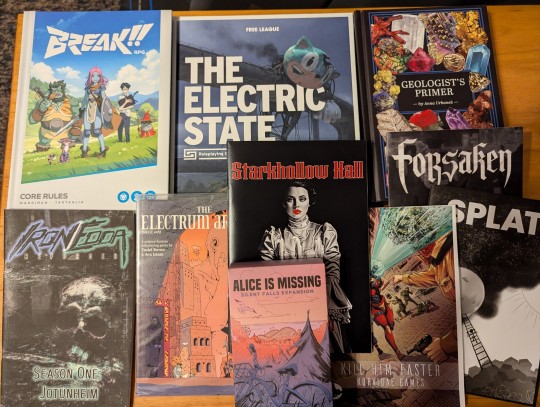
It's a bad day, and I've been dragging my heels on this. But, I got a bunch of neat new TTRPG stuff in October, so here's what landed in my mailbox.
Break!! - A few years ago, I stumbled on some art on Twitter. It was fun, it was vibrant, and it felt inviting. I wanted to know more, looked into the artist, and discovered it was spot art for an upcoming RPG called Break!! So, I kept an eye on it. The book is beautiful, well laid-out, and really cool, so maybe one good thing came from Twitter*.
The Electric State - Tales from the Loop and Things from the Flood have been pretty high on my "To Play" lists for years. A follow-up, set in a similar (or the same?) world was kind of an instant pickup. Not as interested in the movie, but the game seems pretty rad.
The Geologist's Primer - I picked up the Herbalist's Primer when it came out, and was really impressed with the quality and care that went into it, so when I saw "That but for rocks" was in the works, I was definitely already in. Also excited for the follow up "Mushrooms next time".
Starkhollow Hall - I accidentally fell into a Gothic Fiction kick over Spooky Month, so the timing of this was perfect. I don't know a ton about the GUMSHOE system, but I do feel like what I know about it makes it a perfect fit for the genre. Gothic heroines (and I guess heroes) are at their best when they know there's a dangerous mystery at the heart of what's happening around them, and go looking for it anyway.
Forsaken - Kyle Tam is, honestly, a designer to watch. I picked this up because it was part of an Afterthought Committee project, which is a team I've also really enjoyed work from (my game Water Landing is built off of their game Cast Away). Does a better job of establishing a sort of grimdark/Soulsbourne vibe than some stuff that explicitly tries to.
Iron Edda Reforged - The pitch for this caught me immediately: Cyberpunk Norse Mythology. Tracy Barnett is another Designer to Watch, and I really like all of their stuff--haven't played the original Iron Edda, but have heard it on Party of One and really dug it. Was really hyped to see this come into being.
Electrum Archive v2 - I went through a Weird Sci-Fi phase this year, and the original Electrum Archive was an early pick for it. I really loved the world, the way each class worked differently, and the magic/currency/MacGuffin that it used. Obviously I wanted more, because the second book is here.
Alice is Missing - Silent Falls - My friends and I have been talking about the prospect of another Alice is Missing game since playing the first one about two years ago. It was a really memorable experience, partly due to the game's really compelling design, and to some of the in-moment decisions we made (I played the facilitator character, who starts the game having returned after a long absence, and another player immediately got pissed at them for sorta abandoning the group. it created an interesting play dynamic for the whole session)
Kill Him Faster - I picked up a previous Kovidae Games book as a lark: a collection of exercise-based RPGs. I nearly ignored their other stuff, but this had a pretty compelling pitch: What if time-travel was invented mostly so people could speedrun murdering Hitler. Since Eat the Reich came out, I've thought a bit about Hitler Revenge Fantasy as a genre, and honestly, I'm kinda into it. He was a loser, and deserves to be reduced to a video game villain and killed over and over again; so, yeah. Let's kill him faster next time.
Splat (issue 5) - I'm not usually one for essays and interviews, but this is a zine featuring and by some folks I really like and respect, and this one is packed with thoughts about the state of the indie TTRPG scene and industry from a diverse and immensely talented group. It's honestly a must-read.
(Already getting a few things for the next edition, but also feeling too garbage after the Clusterfuck Election to think about doing anything else today...)
---
footnote: * Technically, two good things came from Twitter. I also once expressed sorrow that I'd missed out on a limited T-shirt from a web comic artist that said "Sorry, Glenn, the only Beck I listen to has two turntables and a microphone", and the creator saw it and had an extra in my size.
#indie ttrpg#ttrpg dev#ttrpg#monthly ttrpg mail call#trying to find something fun to be excited about today#because I'm otherwise so pissed about the state of the US that I can't really think about anything else#fuck trump
40 notes
·
View notes
Text
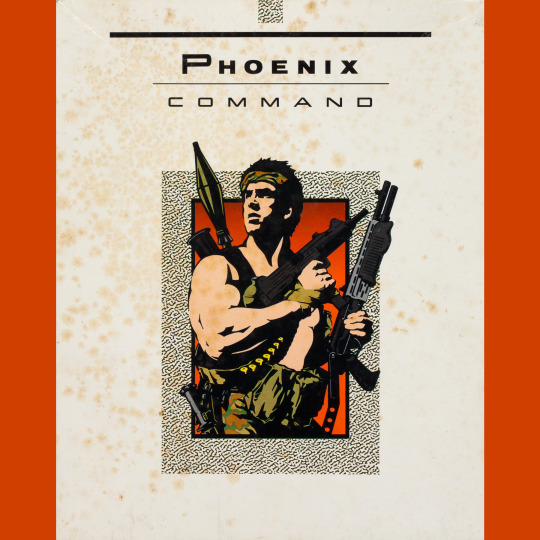


Phoenix Command (1986) isn’t technically an RPG. Rather, it is a small arms (and later, through expansion, all sorts of arms) combat system intended to replace existing systems for such in your favorite game. Why you would do such a disservice to your favorite game like that is beyond me, but hey, who am I to judge?
This thing is painfully complex. There are an eye-watering 35 different hit locations tied to a percentile table (Rolled a 30? That’s a hit to the stomach/spleen!). Weapons all have an aim time that impacts accuracy. There is an alphabet soup of abbreviations. There are tables galore, not a one of which I can parse. It’s gotta be one of the most complicated RPG systems ever conceived.
I love it. It’s so unapologetic. I will never play it or take it seriously, but I will forever appreciate its utter hostility to fast and smooth gameplay. That clip-art Rambo on the cover, covered with so many guns he probably can’t move, is the best possible mascot. He sums it all up perfectly.
Even better: the designers couldn’t even deal with this shit. When Leading Edge produced Living Steel and the various licensed games (Dracula, Aliens, Lawnmower Man lol), they used a simplified version of the Phoenix Command combat system. Humbled by their own creation. Beautiful.
61 notes
·
View notes
Note
whats crafting mechanics in the isekai. like the way the world works or like minecraft crafting recipes.
many isekai (most of them nowadays, really) have RPG logic engrained into the universe, the exploitation of which usually ending up to be the pin holding the protagonist up as the Most Powerful Dude.
for example, in the (bland) manhwa i'm currently reading (technically in manhwa it's not called isekai, the genre is called transmigration i think) called "Astral Pet Store" he, essentially, runs a pokemon center/daycare/pokemart. a lot of the stories main goals are like. upgrading incubators and finding rare materials. and i like that stuff! it's enjoyable to see Guy Get Stronger Like Video Game.
in other stories there are different kinds of progression and crafting systems. like in Slime Reincarnation, theres a lot of time in the early story dedicated to what is basically RPG settlement building.
97 notes
·
View notes
Text
I haven’t seen any real critical takes on veilguard on here, so I wanted to add my 2 cents and open up a discussion bc at this moment I would say I’m beefing with BioWare lol.
Firstly, did I have fun playing veilguard? Uh, yes? I guess? Technically? I would definitely say the combat system and a lot of the gameplay itself is far better than it has been in previous games, and made me more engaged.
However, the writing issues at BioWare came to a major head here.
1) i didn’t feel like they went into the political and social implications of what was going on at all?? The elven gods coming back would bring so many other consequences beyond the destruction and blight. We didn’t see how this affected the way elves were treated, especially somewhere like Tevinter.
2) what happened to the Templar/mage conflict? The implications of the elven gods being alive and back are that then the chant and chantry are mostly wrong. There is no “magic was made to serve man and never rule over him.” This would likely make mages lash out at templars for being oppressed over what have turned out to essentially be lies. The templars then would likely split into those that leave the chant and focus on the real threats before them, and those who dig in their heels and decide that mages should still be oppressed bc of the dangers no matter what the chantry says. This would be such an interesting political shift to witness! And I’m sad we didn’t get this amount of depth
3) what happened to Solas’ followers? There was something so interesting to explore about having current elves helping him because they felt he was doing the right thing. We don’t run into any of his followers at all! And elves would definitely have more than enough reason to seek the world of the ancients and return to Arlathan given tevinter slavery and general oppression across Thedas, so what happened to that?
4) the only complex companion relationship that is allowed in-game is with rook and whoever was hardened with the treviso/minrathous choice. Otherwise, you can’t really have an antagonistic relationship with any of them. The only way to not progress a good relationship is to not engage in their content which I feel like is very weak writing. In DAI, you walk in on Cassandra and varric physically fighting and have to side with one of them. You can tell Cullen to keep taking lyrium. You can pick the wrong option in a companion quest and worsen your relationship. Where was that in this game?
5) the roleplaying, or lack there of. Sometimes I would pick the most aggressive option and it would still sound pretty nice, all things considered, where is my ability to feel differently outside of the very narrow window the game provides?
6) the STAKES of it all. The companions all seem very chill about things, all things considered. They are finding out things that would politically turn thedas on its head, and they’re having these calm discussions around a coffee table. I’m currently on my second play through, and it feels like none of these discoveries are given the weight they deserved, after three games of built up lore.
7) the gods’ allies. The motivations of the bad guys can pretty much be summed up by saying “want power” and that creates such shallow villains. Like yeah, obviously they’re bad bc they just want power and don’t care about people, but what about villains that do care about others? Villains that are complicated? I mean hell even though Alexius was mostly like “yes corypheus power” there was that grounding aspect of him wanting to save his son who was sick. I don’t feel like we had anything that tangible or real from major villains in veilguard
Ok, long post, but I do feel like BioWare has started to shy away from nuance and gray areas in a way I don’t like. It is important to show the complicated perspectives of evil people because that is the same thing we have to deal with irl. As an action-adventure game, it’s fine, but veilguard can scarcely call itself a true rpg. I don’t know, my feelings about it are complicated but all I know is that this game was quite disappointing to me especially compared to DAI, and I want to hope for better from the next game but given the way their BioWare’s last couple releases have gone I can’t say I’m expecting a lot. Anyway, how are yall feeling fr?
#dragon age#dragon age veilguard#veilguard spoilers#I’m BITTER#I used to feel like I could always count on BioWare for good character writing and nuance but this game threw that right out the window#dragon age veilguard spoilers
16 notes
·
View notes
Text
I'm so stoked! I've had so many breakthroughs simultaneously on this system!
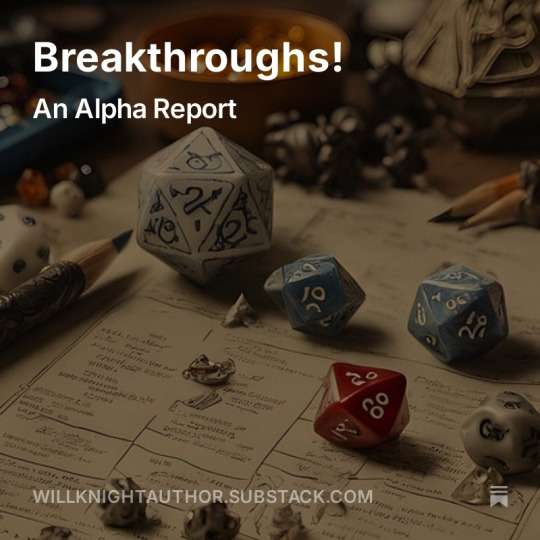
I've been churning through RPG after RPG, trying to find everything useful, see every way it's been done. It's been a whirlwind, and I'm still in the middle of it, but I've been surprised at how little variation there is. Even the free form, "roleplaying forward," GM-less jam games do a lot of the same things as each other. Even if the mechanics are technically different, using different dice, the goals and ethos of the designs are identical. And we're all aware of the hoard of OSR/NSR games.

It started out with my fascination with balancing simulation and character-driven storytelling in a fun way, eventually becoming a desire to fix my frustrations with the World of Darkness. While I enjoy the campy, B-movie side of horror in the World of Darkness, I myself am more of an A24 type of writer (e.g. Midsommar, The VVitch, Under the Skin). The worlds I like to build, even when surreal, have solid internal logic. I crave that balance between the impossible and the gritty, between the beautiful and the horrifying.

I figured out how to tie everything to one health system, which itself is tied to one 10d6 dice pool. Now stress and health are one thing, and it directly affects what type of dice you roll, which changes odds and side effects. Your stats and your combat exhaustion determine the number of dice rolled, which means the more you do in combat, the fewer dice you have, and the lower your odds of success.

Because it's a d6 pool with success on one 6, the probability changes roughly linearly compared to other dice pool systems. Because there's only one vector for probability--more or less dice--difficulty is an easy thing for the GM to determine, and the probability of the roll quickly judged.
youtube
By tying actions to the dice pool via fatigue, I realized I can encourage scrappy, gritty, tactical combat by rewarding players with a second wind, meaning they get dice back. Now there's momentum between attackers and defenders. If you get backed into a corner with no options you start getting exhausted, but if you find a way to scramble out of it, jab them in the eyes, utilize the environment, make them hit their ally, then you recover and turn the tables. Even the initiative system ties into this scrappy back-and-forth, since initiative changes non-randomly during combat. And this is all in a zone-based “theater of the mind” combat system.

I've completely eliminated experience. Instead when you do difficult things and take risks, you get temporary boosts to that skill for future rolls. To permanently advance it you must engage in training, either as a side activity or during down time, over a realistic amount of time. At the highest levels you have to go on personal quests to advance your skills. Thus your skill advancement is tied to roleplaying.

Going up a single point in anything is very difficult though. Most of the "character advancement" instead is about character change. You gain new skills and abandon others, and via your new skills you can acquire a new "class." Basic advancement is quantitative, but all significant advancement is qualitative, using skills themselves as currency. You don’t just advance, you adapt.
Your "class" is advanced through a customizable narrative achievement tree. Thus to become a better mage, you must pursue life goals, narrative turning points, and personal transformations, based on their own ambitions and your ambitions for them as a character.

Almost every stat is an abstract representation of the character's internal qualities and state. Those internal states then have mechanical effects during the game if you can roleplay them: goals, passions, memories, knowledge, social ties, reputation, etc. It's conceptual, but it's not the loosy-goosy LARP style. There are mechanics with numerical and statistical effects, they're just tied to qualitative stats driven by roleplaying.

Importantly, there are many hooks for alternate or additional systems, especially weird and supernatural ones. I hate it when "magic" just amounts to a list of very narrow spells and their usages. Now there are many mechanical hooks for supernatural things tied to capabilities, knowledge, motivations, social role, self-image, core memories, etc.

I designed it backwards from multiple future games which will be very weird and abstract. The system as it stands represents the gritty foundation of any number of future games emphasizing social intrigue, personal horror, heart-pounding combat, and Lovecraftian worldbuilding. It's the ruleset for the regular, mortal humans, doing possible things in the real world… but with mechanical possibilities for much more.
Here are the games which inspired or influenced the design. I think it gives you a sense of how diverse and specific the design choices are.
Wraith: The Oblivion
Alien RPG
Over the Edge
Heart
The Wildsea
The Burning Wheel
Fate
Thousand Year Old Vampire
Na Ratunek Marsowi
Feng Shui
Barbarians of Lemuria
Mythras
Exalted
Fireborn
Delta Green
Reign
Gumshoe
Shock: Social Science Fiction
The True OSR: Obsolete Shitty Rules
The Devil, John Moulton
Cyberpunk RED
Dune RPG
Mothership
Streets of Peril
His Majesty the Worm
The Cypher System
Next I need to look into more (genuinely) experimental systems, especially ones involving memory and investigation. "The Between" and "Brindlewood Bay" are next on my list. The closest vibe design-wise I've gotten is from "Broken Empires" (which I'm so stoked for).
It's getting to the point where the overall rules are all set enough that I can drill down to specific numbers for everything, make some premade characters, and start playtesting. Fuck yeah.
#TTRPG#roleplaying#tabletop roleplaying#table top role playing game#game design#combat#action#Youtube#World of Darkness
20 notes
·
View notes
Text
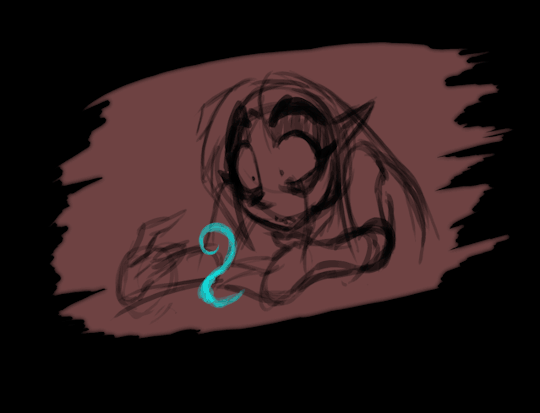
WIP - Melodi Opening Cutscene
I won't be revealing a LOT of sneak previews of Melodi, but when this cutscene is complete, it will serve as a teaser for the game being officially in production.
For now, may this serve as a proof of concept and an introduction into what to expect in the world of Melodi.
Melodi is being produced in RPG Maker, and cutscenes will be in this style for storytelling purposes. Not fully animated, but sort of animatic. The animatic style is very much hearkening to using Tumblr's inline image viewing system to make pseudo-animations frame by frame.
The difference between red and gray backgrounds is that red is the color of unshaped dreams, while the other is the waking world. Melodi's species may not sleep, but they can daydream very vividly.
In this scene, we are introduced to our protagonist, Melodi, the scatterbrained Ellinai ("Moon Elf"), and her History Professor, the esteemed Eliah Sterium (He is a Whimzy, magical dream unicorns).
In Melodi's universe, a slap with a ruler isn't even close to the worst things a teacher will do to their students.
[Note: I will be making a Discord server for Melodi game development, and that server will be utilized for asking questions, seeing art production, WIPs and other things, as well as information about how you can support the production of Melodi, be it financially, technically (teaching me how to RPG Maker) or simply with vocal support. It will also have channels for discussion on different topics such as characters, lore, fan art, draw-along streams, spoiler discussion and theories about upcoming story beats. I'll be posting here when the Discord is created and I hope many of you join! Please keep in mind that the game is very violent and raunchy, but is not pornographic. It will be rated M but will not contain nudity. Sexual references, yes, but visually speaking it will not contain porn. I just wanted to make this clear right away before moving forward in production with the game.]
70 notes
·
View notes
Text
Perfect Draw
Shoutouts to this being one of my favorite queer developed TTRPGs in a while and it only fully came out after I had chosen my pride month line up
Touchstones: Yu-Gi-Oh!, Cardfight Vanguard
Genre: Card Game anime, Shonen
What is this game?: Perfect Draw is a tabletop rpg about card games and the kids who play them
How's the gameplay?: Perfect Draw is a powered by the apocalypse game, more info on that here, the narrative bits have some interesting mechanics that play into other systems, but that's not really why you're here. While Perfect Draw's narrative roleplay systems are certainly competent and fun, the REAL meat comes in the form of its extensive in-depth combat system. Players get to build their own deck of custom cards, using either custom or pre-made effects, and get to duke it out in a simplistic albeit very fun TCG, a major thing in the game design is the idea that Winning will always be a hard bargain, and sometimes winning might be the incorrect choice!
What's the setting (If any) like?: Perfect Draw technically is setting agnostic, but it does have a default setting in Shuffle City, a city inspired by the many different cities in Yu-Gi-Oh (Domino City, Heartland City, arguably Neo Domino from 5ds?), its a large city with many strange and unique characters, and a strange underbelly of mystical powers fighting each other for power! Perfect Draw's setting is very loose however, only really requiring the vague idea of magic (kinda) and card games to really get started. What's the tone?: Perfect Draw often has the tone of the anime its based on, high action friendship-fueled powers abound! It's very cute and optimistic, but I've seen darker games work decently well
Session length: Combat can take a little bit, but 2-3 hours is realistic
Number of Players: Perfect draw is, very deliberately, built around smaller groups, 4 players (including GM) is advised
Malleability: As said above, PD does not have a setting, you could theoretically run anything within it!
Resources: This is sadly where the game falters a bit, right now there's a few unofficial Tabletop Simulator add-ons, but that's about it, there's also an official card maker, a card balance calculator, and a few homebrew playbooks, also there's a huuuuge sheet of community made keywords for cards (some of which are written by yours truly!)
I'm a MASSIVE fan of card game anime, they're just so genuine and silly in ways that not a lot of media nowadays is. so seeing a game that appeals so much to me was a godsend! It's a fantastic game made by fantastic people, and I highly recommend it
68 notes
·
View notes